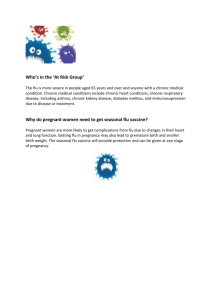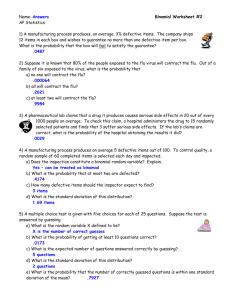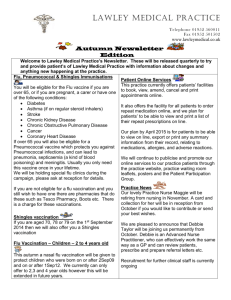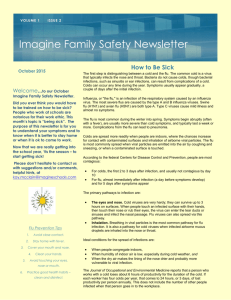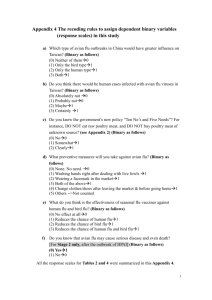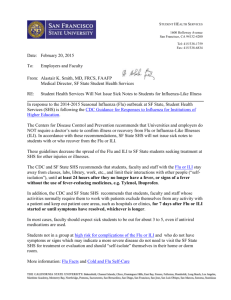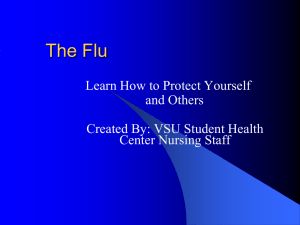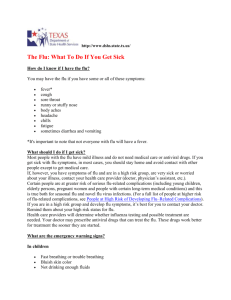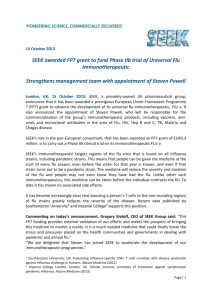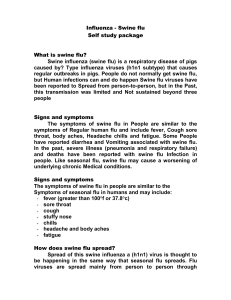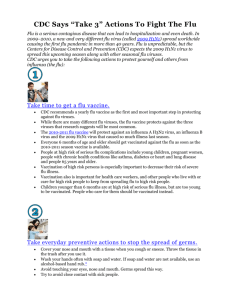flu prevention
advertisement
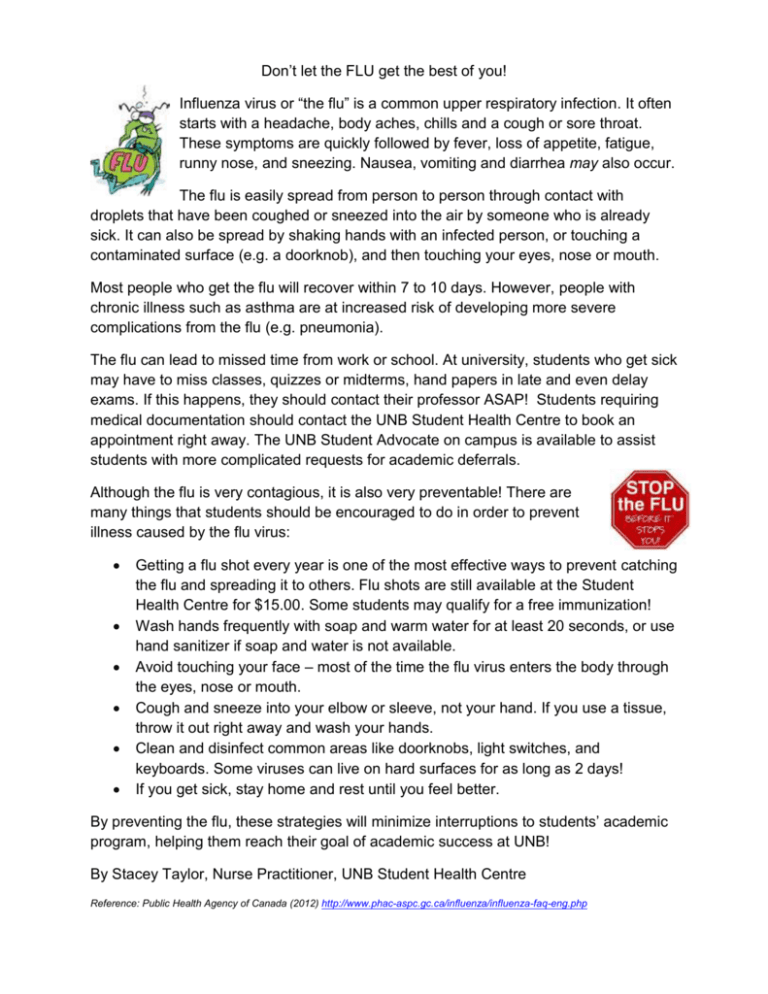
Don’t let the FLU get the best of you! Influenza virus or “the flu” is a common upper respiratory infection. It often starts with a headache, body aches, chills and a cough or sore throat. These symptoms are quickly followed by fever, loss of appetite, fatigue, runny nose, and sneezing. Nausea, vomiting and diarrhea may also occur. The flu is easily spread from person to person through contact with droplets that have been coughed or sneezed into the air by someone who is already sick. It can also be spread by shaking hands with an infected person, or touching a contaminated surface (e.g. a doorknob), and then touching your eyes, nose or mouth. Most people who get the flu will recover within 7 to 10 days. However, people with chronic illness such as asthma are at increased risk of developing more severe complications from the flu (e.g. pneumonia). The flu can lead to missed time from work or school. At university, students who get sick may have to miss classes, quizzes or midterms, hand papers in late and even delay exams. If this happens, they should contact their professor ASAP! Students requiring medical documentation should contact the UNB Student Health Centre to book an appointment right away. The UNB Student Advocate on campus is available to assist students with more complicated requests for academic deferrals. Although the flu is very contagious, it is also very preventable! There are many things that students should be encouraged to do in order to prevent illness caused by the flu virus: Getting a flu shot every year is one of the most effective ways to prevent catching the flu and spreading it to others. Flu shots are still available at the Student Health Centre for $15.00. Some students may qualify for a free immunization! Wash hands frequently with soap and warm water for at least 20 seconds, or use hand sanitizer if soap and water is not available. Avoid touching your face – most of the time the flu virus enters the body through the eyes, nose or mouth. Cough and sneeze into your elbow or sleeve, not your hand. If you use a tissue, throw it out right away and wash your hands. Clean and disinfect common areas like doorknobs, light switches, and keyboards. Some viruses can live on hard surfaces for as long as 2 days! If you get sick, stay home and rest until you feel better. By preventing the flu, these strategies will minimize interruptions to students’ academic program, helping them reach their goal of academic success at UNB! By Stacey Taylor, Nurse Practitioner, UNB Student Health Centre Reference: Public Health Agency of Canada (2012) http://www.phac-aspc.gc.ca/influenza/influenza-faq-eng.php

